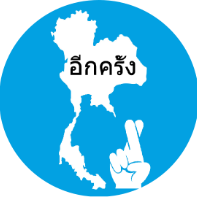Change In Mindset: Thai Opinion
-
Recently Browsing 0 members
- No registered users viewing this page.
-
Topics
-
-
Popular Contributors
-
-
Latest posts...
-
14
Pritzker for President 5555
Yer lets leave it to someone who has F%#*K up California to do the same to all of America- 1
-

-
18
Economy Buy Now Pay Later Trend Alarms Thai Economic Planners
This 'BNPL' is not a recent trend. For the more than 10 years that I lived full-time in Thailand, all the adult Thais that I knew were living beyond their financial means, using many different types of extended credit, with increasing debts that they could never hope to pay. -
19
Scotland - Alarming Increase in Strokes since 2020
Lol... after only ten replies on a medical thread someone tries to turn it into a hate Trump "Orange man bad" thread... some of you are unhealthily fixated on this topic and should be careful of giving yourself a stroke over him. -
7
Winter fuel payments
All eligible pensioners get it but those with an income in excess £35k have it clawed back through PAYE or Self Assessment, though you can opt out of being paid it. -
277
Road Rage (Foreigner Style)
@fredwiggy What is this weird new diatribe? Narcissists come in many different forms. There is nothing that I see in you that is empathetic. You are almost always talking yourself up on this board. Not ever showing humility. It's totally ridiculous that you claim to be an empath. You are just on another planet if you expect anyone to believe your nonsense for very long. Your behavbiour is clear for all to see. I'm not lying nor Trolling. It's how you come over. Show me a post or thread from yourself that displays anything like humility. It's all about how great you consider yourself to be. Are you really that blind to yourself? -
277
Road Rage (Foreigner Style)
If you're doing 10kmh / 6mph with this view, then there's no chance of an accident. Taking into account the pedestrians, you should be focusing on their actions and safety.
-
-
Popular in The Pub

.thumb.jpg.d9f3e54432a0ae65f4d5beb0d2d122ce.jpg)




.thumb.jpg.b54783ad387f65d779e04f535fcfeee9.jpg)











Recommended Posts
Create an account or sign in to comment
You need to be a member in order to leave a comment
Create an account
Sign up for a new account in our community. It's easy!
Register a new accountSign in
Already have an account? Sign in here.
Sign In Now